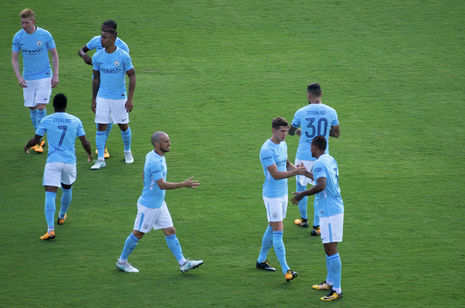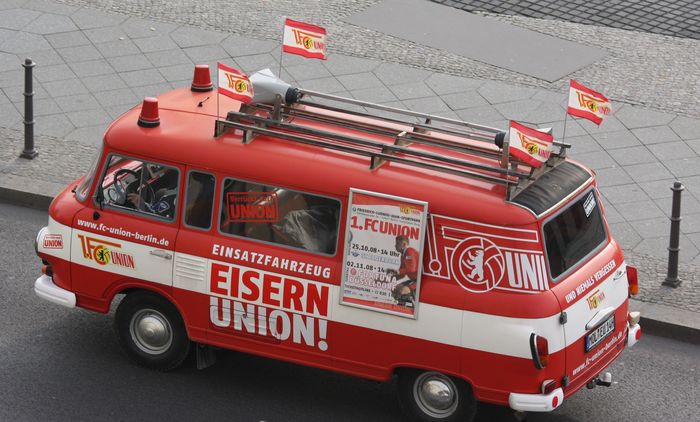‘An advert for the Premier League’: Manchester City’s dominance allows for uninhibited beauty in top-flight football
As Manchester City currently top the table by a ten-point margin, Joshua Korber Hoffman praises the superiority of Pep Guardiola’s men, yet relishes watching the newfound freedom in teams no longer obsessed with a futile title challenge

“An advert for the Premier League.”
So said the pundits after Chelsea’s frenetic draw with Liverpool on Saturday (01/01). We, the fans, had to agree; so mesmerised were we by Kanté’s balletic grace and charm, Salah’s ability to freeze time with the ball at his feet, and the flight of Kovacic’s volley. Which other league could produce such an exhibition – a work of performance art to which both teams contribute equally? Conditioned as we are to phrase everything involving football in commercial terms, we all expressed in unison: “this is the best advert I have ever seen”.
This is what football should be. In the 1920s, legendary Arsenal manager Herbert Chapman said that football would improve dramatically if only less importance was placed on the value of points and players were less afraid to lose. Now, with Manchester City ten points clear at the top of the league, we are finally seeing it. Open, attacking football, played by the world’s best players without the cagey anxiety of teams that can’t afford to lose. The title is already lost. It’s time to unleash mayhem.
“They are a team so perfect, so unassailable, that their closest competitors need not worry about the significance of losing”
Of course, this means that the defending is an utter shambles, but who wants to see clean sheets anyway? We want to see goals, dramatic saves, near misses. We want to hear the roar and the groan and the gasp of the crowd. Chelsea vs. Liverpool was a gluttonous feast of all those centimetre-moments that create such eye-widening emotions - those moments where the outcome is decided by the smallest of distances. Football as theatre.
For all that joy we garnered from a game played purely for dramatic purposes, we have Manchester City’s ten-point lead to thank. A team so perfect, so impeccably curated as to be indistinguishable from a computer programme, that to drop points can only be the result of a fluke in the algorithm. When Pep Guardiola is the programmer, that is a rarity. So rare, in fact, that City find themselves with a ten-point lead at the top of the league. They’ve won 17 out of a possible 21 games. Barely halfway through the season, the title is all but theirs (again). They are a team so perfect, so unassailable, that their closest competitors need not worry about the significance of losing; City’s title victory is a foregone conclusion. Whilst competition suffers as a result, football, uninhibited by a paralysing fear of dropping points, thrives.
“And yet, none seem so isolated in their immense financial and footballing resources as Manchester City”
When, barring an act of God, Man City lift the Premier League trophy in May, it will be their fourth win in five seasons. This is not unusual for the Premier League – Manchester United won the league eight times in the first eleven years of the newly designed top flight between 1992 and 2003. United also won the league four times in five years between 2006 and 2011. English football is no stranger to single-club dominance. But this Manchester City team feels different. In those four United league wins, they won by six, two, four, and nine points respectively, with their points totals standing at 89, 87, 90, and 80. In Manchester City’s three recent league wins, they’ve won by 19 points, one point, and 12 points, and their points totals were 100, 98, and 86. This season, Guardiola’s side are on track to total 96 points, leading by ten halfway through the season.
The only reason City’s lead was so slender two years ago was because Liverpool were near-enough flawless. Even then, with the perfect setup – from manager to players to tactics – Liverpool could only take one league title away from City. They could not compete with the spending, the Abu Dhabi blank cheque, given the green light by so-called ‘Financial Fair Play’, that meant City could afford to pay £100 million for Jack Grealish to sit on the bench. No one can compete with the financial muscle of Manchester City. The best we can hope for is a once-in-a-generation team like Liverpool to produce a flawless campaign every five or six years. Otherwise, there seems to be no feasible way of anyone else winning a Premier League title ever again. Unless, of course, another vastly resourceful state buys a football team with the intention of creating a super club. But that will never happen… right, Newcastle?
Liverpool’s struggle to compete with City at the top, partly driven by financial inequality, is one that reverberates further down the table too. Fans of smaller clubs complain of the same discrepancy between the big six and the rest of the league, and this financial disparity translates to wide points margins come the end of the season. And yet, none seem so isolated in their immense financial and footballing resources as Manchester City; stuck at the top of the league, winning game after game all alone, looking down at the rest partying below.
So perhaps we shouldn’t focus on the money. Instead, we should focus on the adverts. Those gorgeous, tingly adverts for the Premier League. Those Kanté changements and Salah pirouettes. Manchester City’s robotic excellence might be frustrating, but if it allows such glorious moments like those at Stamford Bridge, then maybe it’s all worth it. Sometimes you need the darkness to appreciate the light.
 News / University Council rescinds University Centre membership20 February 2026
News / University Council rescinds University Centre membership20 February 2026 News / Hundreds of Cambridge academics demand vote on fate of vet course20 February 2026
News / Hundreds of Cambridge academics demand vote on fate of vet course20 February 2026 News / Judge Business School advisor resigns over Epstein and Andrew links18 February 2026
News / Judge Business School advisor resigns over Epstein and Andrew links18 February 2026 News / Caius students fail to pass Pride flag proposal20 February 2026
News / Caius students fail to pass Pride flag proposal20 February 2026 News / Union cancels event with Sri Lankan politician after Tamil societies express ‘profound outrage’20 February 2026
News / Union cancels event with Sri Lankan politician after Tamil societies express ‘profound outrage’20 February 2026











